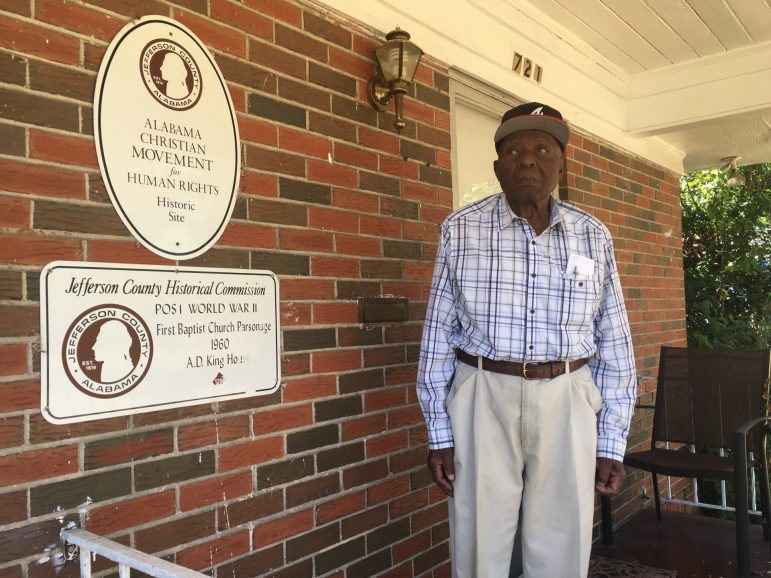On May 11, 1963, a bomb blast ripped through the home of the Rev. A.D. King, pastor of First Baptist Church Ensley. Like his brother, the Rev. Martin Luther King Jr., A.D. King was a civil rights champion. He led marches and held meetings in the church with fellow foot-soldiers.
Ensley residents who remember that tragic event and the role the community played in the civil rights movement say this rich history is important today as Ensley looks toward revitalization.
Dr. Alveda King was 12 when her family’s home was bombed. She remembers it vividly. Her mother was getting the dinner table ready for the next day, Mother’s Day. Her father was preparing his Sunday sermon.
“The whole front of the house exploded,” says Alveda. “The only thing that was left unbroken in the debris was a picture of Jesus. It was cracked, but Jesus’ face was intact.”
A few blocks away from the parsonage, Erskine Lewis, a deacon at First Baptist Church Ensley and a close friend of the Kings, heard the blast.
“I was at home, matter of fact, going over my Sunday School lesson, and I heard something say ‘boom,’” he recalls.
Like most of the neighborhood, Lewis rushed to the parsonage when he heard the blast. When he got there, he noticed two things: The King family was climbing over the fence to escape harm, and a policeman was already in the front yard.
“One policeman, standing in the yard,” Lewis says. “The police was the Ku Klux. And the smoke was still coming from the bomb.”
Many people suspected that the Birmingham Police Department, headed by Commissioner Bull Conner, was secretly an arm of the Ku Klux Klan. Lewis believes the policeman in the yard was connected with the bombing.
Places like the First Baptist Church Ensley were targets because civil rights leaders spoke from their pulpits. Dr. Martin Luther King, Jr. often stayed at the parsonage with his brother when he was in town to lead rallies and marches. Church leaders believe that the Klan bombed the parsonage that night thinking Dr. King was there.
Omie Crockett, the oldest deacon at First Baptist Church Ensley, recalls the days when the civil rights icon spent time in Ensley with his brother.
Several years ago, the church decided to sell the parsonage. So Crockett — a 94-year-old retired factory supervisor — bought it. He wanted to keep it as a reminder of Ensley’s history.
But while people in the 1960s were aware of the community’s contributions to the civil rights movement, younger people don’t know much about it, says Doris Smith, a retired educator and lifelong Ensley resident.
“If students and families knew exactly what happened back during that time when we were struggling for freedom, that would give them a sense of pride,” Smith says.
She’d like to see schools, churches, and other groups educate children and young adults about the community’s rich history.
“This pride that our forefathers had should certainly have a bearing on us,” Smith says.
That sense of pride, she says, will further motivate the community to revitalize and attract people to Ensley once again.
The Junction is produced by Mary Quintas and brought to you by WBHM and Finding America: a national initiative produced by AIR, the Association of Independents in Radio, Incorporated. Financial support comes from the Corporation for Public Broadcasting, the Wyncote Foundation, the John D and Catherine T MacArthur Foundation, and the National Endowment for the Arts.

